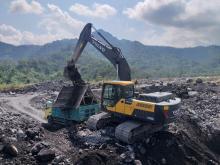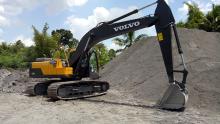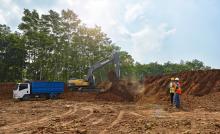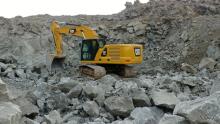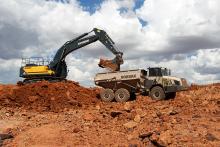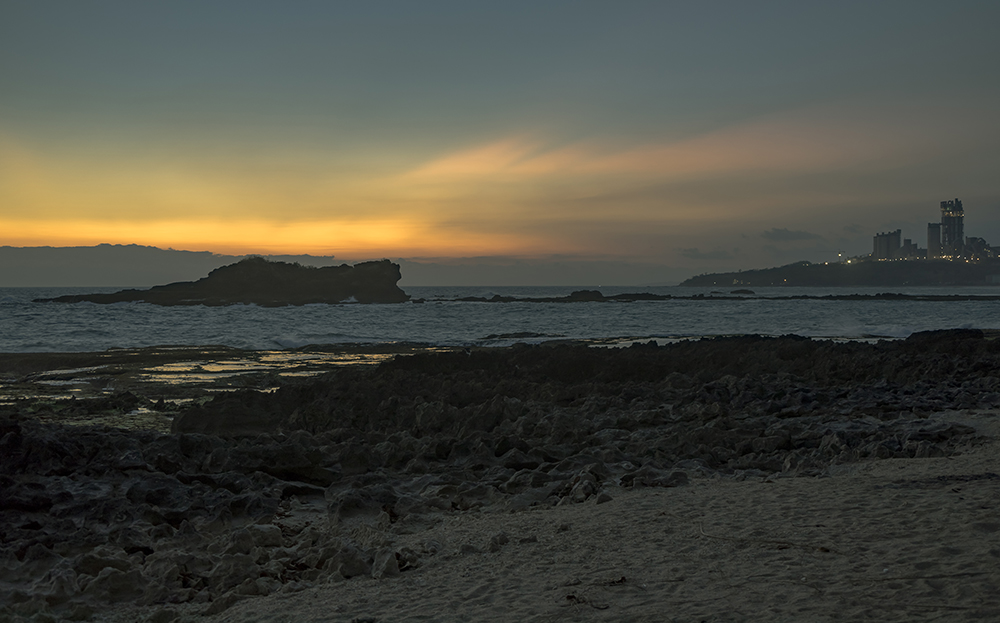
Indocement Tunggal Prakarsa (Indocement), whose majority shareholder is German building materials giant HeidelbergCement, saw its year-on-year revenue fall nearly 10% (-9.91%) to IDR 3.73 trillion (US$246.12 million) in the first quarter of 2020.
The major Indonesian cement firm’s profit for the quarter was IDR 400.43 billion ($27.52 million), up 0.88% from the same quarter in 2019.
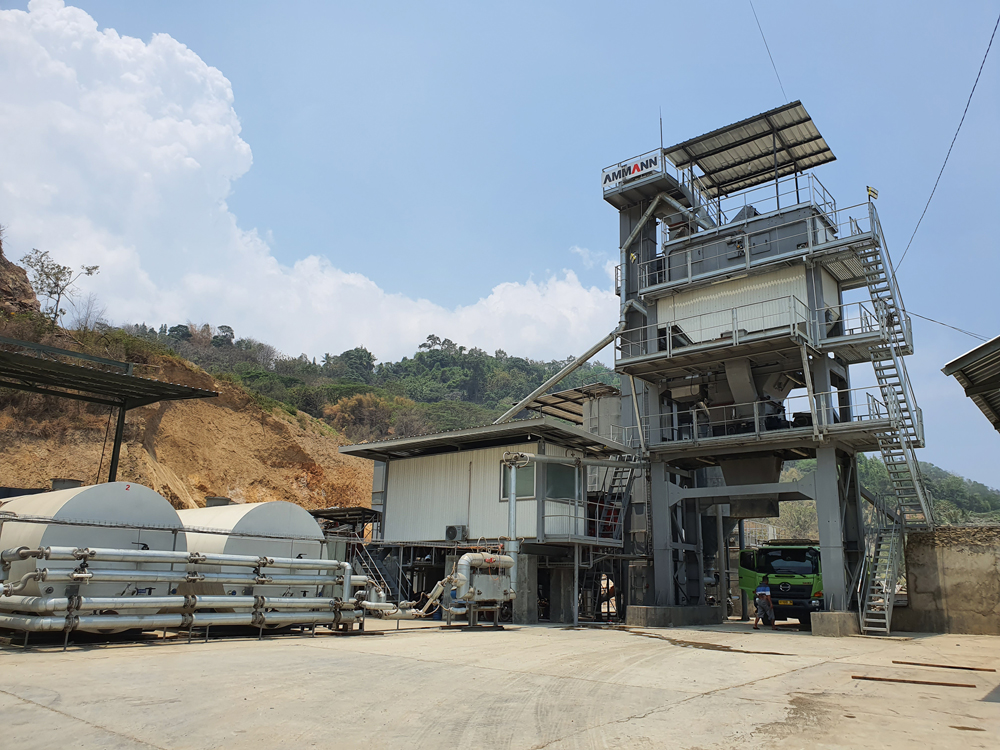
Sales of cement to related parties were at IDR 30.07bn ($2.06 million), down 27.29% from a year ago while sales to third parties were at IDR 3.04tn ($208.96 million), a drop of 8.42% from a year earlier. Indocement’s sales of pre-mixed concrete were at IDR 291.67bn ($20.04 million), a year-on-year decline of 20.1%. The company’s sales of aggregates dropped by 92.02% to IDR 172 million ($11,823). Finally, Indocement’s cost of goods decreased by 10.54% to IDR 2.29 trillion ($157.41 million).
As of 31 December 2019, Indocement had six subsidiaries through direct ownership and 22 subsidiaries through indirect ownership involved in several businesses related to the production and sale of cement, ready-mixed concrete (RMC), aggregates, and trass.
Today, Indocement operates three factories, which together host 13 plants with a total annual production capacity of 24.9 million tonnes of cement. Ten plants are located in Citeureup Factory, Bogor, West Java; two plants in Palimanan Factory, Cirebon, West Java; and one plant in Tarjun Factory, Kotabaru, South Kalimantan. The Citeureup Factory is now one of the largest integrated cement plant complexes in the world. To support its business and distribution network, Indocement owns eight cement terminals and 42 batching plants. In 2019, to reduce distribution costs Indocement opened new cement terminals in Lampung and Palembang, one of which is to supply cement for the construction of the Trans-Sumatra toll road.
To strengthen its aggregates business and secure the supply of good quality aggregates for its ready-mixed concrete business, in early 2019 Indocement started building a 2.5 million tons a year aggregates processing site on greenfield land in Pamoyanan, West Java. The new aggregate quarry was due to begin operating in Q2 2020.
In response to the ready-mixed concrete business climate, Indocement last year shifted its focus to a more specialised market segment targeting the industrial consumer segment, which requires concrete with high-quality standards. This includes the construction of power plants and high-rise buildings. Indocement also initiated the marketing of slag cement by using a consultative selling method. It is said to have yielded positive results with the slag cement used for a big port construction project in Patimban, West Java.
Ammann is among the leading global market asphalt plant manufacturers enjoying business success in Indonesia.
For example, an Ammann asphalt mixing plant helped to create new infrastructure for a sensitive national park in Indonesia while minimising the project’s environmental impact.
Way Kambas National Park in the Lampung province of Indonesia is home to Sumatran tigers, elephants, rhinoceroses and rare birds.
The park also attracts many visitors, who provide the funds needed to preserve the rare wildlife. The roads that support tourism, which in turn enables the retention of the sensitive habitat, were in need of replacement and expansion.
Way Kambas is one of about 50 ASEAN (Association of Southeast Asian Nations) Heritage Parks worldwide. The goal of such designated parks is to preserve particularly sensitive areas of biodiversity. The park focuses on saving critically endangered birds and animals that reside there.
Ammann customer PT. Usaha Remaja Mandiri used an Ammann ABA 240 UniBatch asphalt mixing plant to produce a mix for the project.
The ABA UniBatch is the highest capacity plant operating in Indonesia. It is the first plant with a 3.3-tonne mixer. The plant is productive, too, with an output of 210 tonnes per hour – essential as the mix had to cover 50 hectares (500,000m²).
Volvo Construction Equipment is another major global OEM with a firm presence in the Indonesian construction and quarrying equipment markets.
Gerrit Lambert, Volvo CE commercial director for Indonesia, Sales Region Asia, says that while the COVID-19 pandemic has disrupted high-profile infrastructure works, national long-term construction and quarrying equipment demand remains very healthy.
“Some projects have stopped temporarily to prevent the further spread of COVID-19, whereas other Volvo customers have continued working. Through our dealer partners, we have continued to serve all Indonesian customers who have needed us during this period. We have supported our dealer partners by providing them with personal protective equipment, which has allowed them to continue to work in a safe environment while being able to meet customers’ needs for parts and services.
“The prospects for the Indonesian aggregates sector remain positive post-COVID-19. Recovery is likely to be protracted, but we expect the sector to gain momentum in Q1 2021. The government is focusing fiscal spending on post-COVID-19 recovery, especially healthcare and propping up the large informal sector that is prevalent in Indonesia.”
Lambert says Indonesian aggregates processing sites are increasing in size due to higher aggregates demand. Because of this, Lambert says customers are seeking to achieve operational efficiencies. “Volvo CE machines are well suited to customers looking to improve their efficiency as they offer best-in-class fuel efficiency. Demand for larger equipment, telematics and preventative maintenance features are also on the rise. Volvo CE is at the forefront of these technologies and can offer customers unique solutions that meet their needs.”
Asked about whether particular Indonesian infrastructure projects are benefiting from using Volvo CE machines, Lambert says: “The government has laid out a master infrastructure development program focused on logistics – namely roads, airports and ports. The program seeks to lower transportation costs and increase interconnectivity across the archipelago. The largest projects include the Trans-Sumatran Highway, the Trans-Papua Highway, a high-speed railway across Java and finally the construction of a new capital city on Borneo. Volvo CE is already heavily involved in these projects and is a trusted supplier amongst the major contractors participating in these projects.”
Looking ahead to probable changes in the Indonesian aggregates market in the next five to 10 years, Lambert says the aggregates market will likely rebound sharply as the demand for infrastructure remains high. This, he notes, will be made possible by a stable political environment with the incumbent president, Joko Widodo, having been re-elected in 2019 for a second five-year term.
He continues: “Indonesia remains an attractive target for foreign investment with the largest investors in the infrastructure sectors coming from Japan and China. This is reflected in the construction segment forecast from Fitch Solutions, which anticipates 2.1% growth in 2020 and 7.4% in 2021. Whatever the outcome, Indonesia remains an important market for Volvo CE. Together with our trusted dealer partners, we are committed to providing the very best machines, parts and services to meet our Indonesian customers’ needs – especially their drive for efficiency and growth.”
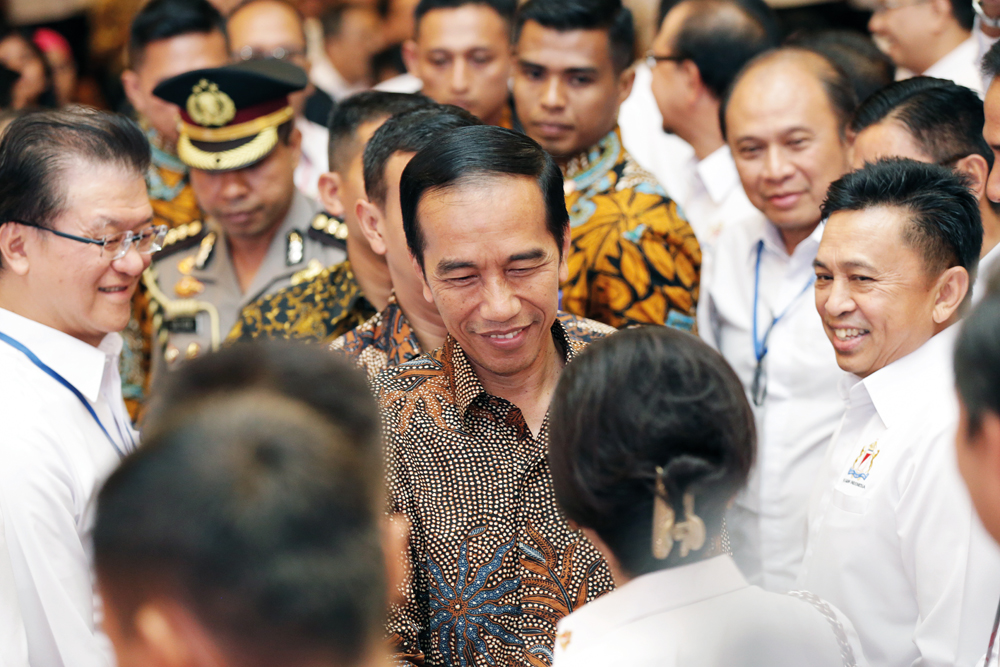
Sumitomo, the Japanese off-highway machine maker, is another major global player doing good business in the Indonesian market. The manufacturer’s excavators are working in a number of quarries in the country, helping stone product businesses supply high-quality products for Indonesian infrastructure projects and other construction works.
Among Sumitomo’s quarrying customers is PT. Gunug Mas Jaya Indah (PT GMJI), a major stone quarry company based in Rumpin, near the city of Bogor, in West Java province. Around 70% of PT GMJI products are supplied to Indonesian government infrastructure projects via several state-owned companies.
Established in 1984, the company continues to grow and has been involved in several joint ventures with foreign companies since 2010.
Among PT. GMJI’s high-quality equipment fleet is a 20-ton class Sumitomo SH210-6 crawler excavator. The model digs out and transports stone that had previously needed to be blasted out of quarry faces. The SH210-6 unit comes with the latest Sumitomo technology, and is said by the manufacturer to be tough, powerful and fuel efficient, while also being comfortable to operate.
Lowa Wentjong, owner of PT. GMJI, says he opted to invest in a Sumitomo excavator as he trusted the Japanese manufacturer’s brand because of the known quality of its products. He was also impressed with the availability of guaranteed replacement parts, and the fact that Sumitomo has an excavator manufacturing plant in Karawang, a town in West Java.
One of PT. GMJI’s SH210-6 operators says the machine offers “agility, power and comfort”. Meanwhile, Dian Ardianto, PT. GMJI’s head of quarry engineering, says he has been impressed with the overall quality of the excavator, its easy maintenance, the quick response of Sumitomo’s aftersales team to any machine-running queries, and the SH210-6’s low fuel consumption.
PT. GMJI believes the company’s relationship with Sumitomo is helping its business to grow and remain confident in its ability to continue winning many orders for stone products for various government infrastructure development in Indonesia.

